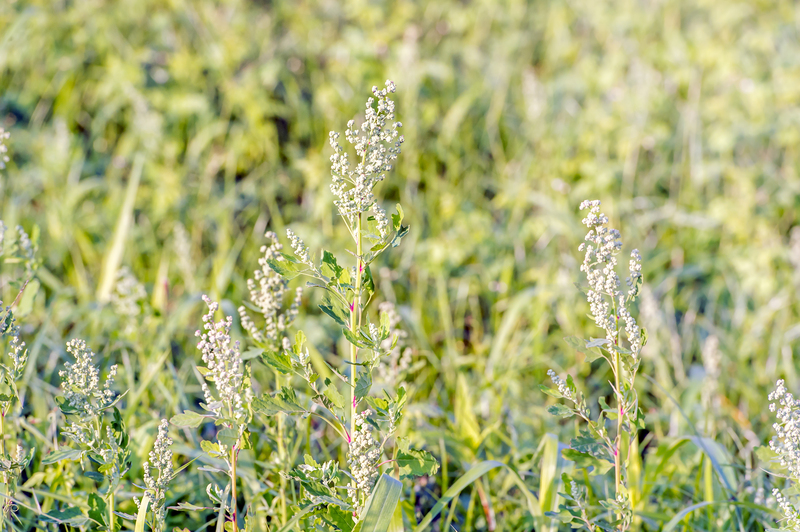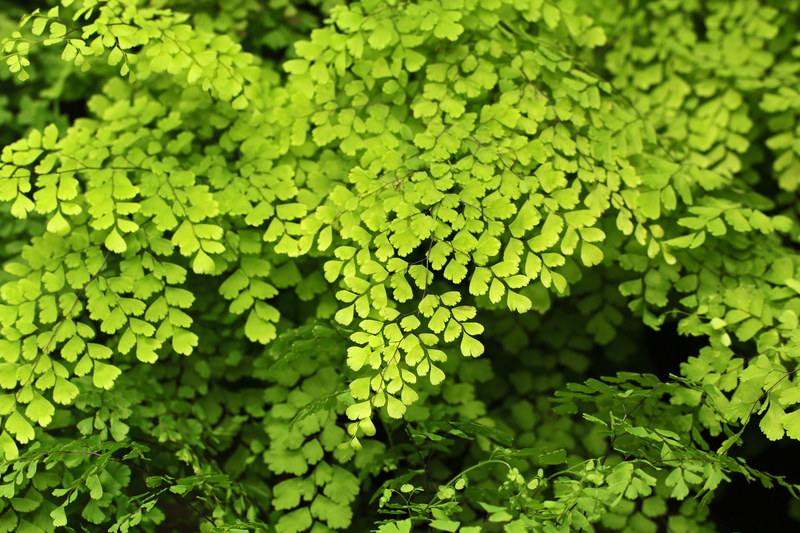Organic Waste: The Unexpected Soil Savior
Posted on 29/05/2025
Organic Waste: The Unexpected Soil Savior
Soil health is the bedrock of sustainable agriculture, vibrant gardens, and the planet's ability to support diverse ecosystems. In recent years, the focus on organic waste has shifted from simply managing rubbish to recognizing it as an invaluable resource. Discarded leaves, vegetable peels, eggshells, and other biodegradable matter, often destined for landfills, are, in fact, potent allies in soil rejuvenation. This comprehensive article delves into how organic waste transforms soil, the processes behind its magic, and actionable ways you can harness its power. Welcome to the unexpected story of organic waste as a soil savior.
What is Organic Waste?
Organic waste refers to any matter that derives from living organisms and can be broken down naturally in the environment. It encompasses a variety of materials, including:
- Kitchen scraps (vegetable and fruit peels, coffee grounds, eggshells)
- Yard trimmings (grass clippings, leaves, branches)
- Paper products, if uncoated and unbleached
- Food waste from households and restaurants
- Manure from animals
Unlike synthetic or inorganic waste, these materials are rich in nutrients and beneficial organic matter. Proper treatment and recycling of this waste can provide an array of eco-friendly benefits.

Why is Soil Health Important?
Healthy soil is an ecosystem powerhouse. It supports plant growth, stores water, cycles nutrients, and sequesters carbon, all while providing a habitat for countless microorganisms and invertebrates. Unfortunately, modern intensive agriculture, overuse of chemicals, and neglect have led to wide-scale soil degradation.
This is where the role of organic waste in soil health becomes paramount. Incorporating raw or processed organic matter into the soil can restore its structure, add nutrients, increase microbial activity, and contribute to climate change mitigation.
Organic Waste as a Soil Component: Nature's Recycling Program
At the heart of the transformation lies the basic principle of decomposition. When organic matter is returned to the earth, decomposers--such as bacteria, fungi, worms, and insects--break down the material, releasing its nutrients back into the soil.
Key Benefits of Adding Organic Waste to Soil
- Improved Soil Structure: Organic matter binds soil particles into stable aggregates, increasing porosity and aeration.
- Water Retention: Soils rich in organics hold water more effectively, reducing irrigation needs and protecting against drought.
- Nutrient Cycling: Decomposition replenishes essential plant nutrients like nitrogen, phosphorus, and potassium.
- Enhanced Soil Microbiology: The addition of organic materials supports diverse and beneficial microbial communities, which further enrich soil.
- Reduction in Chemical Inputs: Healthy, well-nourished soil requires fewer synthetic fertilizers and pesticides.
- Climate Impact Mitigation: Organic-rich soil stores more carbon, helping to lower greenhouse gas concentrations in the atmosphere.
The Science of Soil Rejuvenation with Organic Waste
Soil fertility loss is often a complex interplay between erosion, leaching, and continuous cropping. Here's how organic waste directly counteracts these problems:
1. Nutrient Enrichment
When you add food scraps or yard waste to the soil, the breakdown process (aided by countless microorganisms) releases nutrients in forms that plants can absorb--ammonium, nitrate, phosphates, and more. This process not only replenishes nutrients but does so in a gradual, sustained manner.
2. Soil Structure Improvement
Organic matter in the form of compost enhances the aggregation of soil particles. Aggregated soil is more resistant to erosion, easier for roots to penetrate, and better at retaining moisture and air. As a result, plant roots grow more vigorously and can access water and nutrients more efficiently.
3. Microbial Biodiversity Boost
Healthy organic waste brings in a wealth of beneficial microorganisms. These microbes perform crucial tasks such as breaking down complex compounds, fixing nitrogen, and protecting plants from pathogens. More microbial diversity means more resilient soil.
4. Enhanced Water Dynamics
One of the often overlooked benefits of organic waste is its capacity for water management. By improving soil porosity and structure, water seeps in more efficiently and is held where roots can access it, thereby reducing both runoff and the risks of drought.
5. Pathogen and Pest Control
Certain composting practices (like hot composting) can destroy weed seeds and p*lant pathogens, reducing the need for chemical interventions--providing a natural defense mechanism against garden and field pests.
Composting: The Bridge Between Waste and Soil Health
Perhaps the most familiar and effective way of channeling organic waste into usable soil amendment is through composting. Composting is the controlled aerobic decomposition of organic material by microorganisms. The result is a dark, crumbly, earthy-smelling substance called compost, often termed "black gold" by gardeners and farmers.
Types of Composting
- Home Composting: Suitable for kitchen scraps and yard waste; can be done in bins, heaps, or tumblers.
- Vermicomposting: Uses special worms (e.g., red wigglers) to process organic waste, producing high-quality worm castings.
- Community and Industrial Composting: Large-scale systems that handle higher volumes, suitable for municipalities and commercial farms.
- Bokashi Composting: A fermentation method using special inoculants to break down kitchen waste, including meats and dairy, quickly and without odors.
Composting Do's and Don'ts
- Do use a mix of green (nitrogen-rich) and brown (carbon-rich) materials for balanced decomposition.
- Do turn your compost pile regularly to aerate and speed up the process.
- Don't add meats, dairy, or oils to basic home piles--they attract pests and slow decomposition.
- Do maintain proper moisture; the pile should be like a wrung-out sponge.
- Don't include diseased plants or weeds with seeds unless you're hot composting.
Urban Organic Waste: Untapped Soil Potential
The average city dweller produces a surprising quantity of biodegradable waste daily. Unfortunately, much of it ends up in landfills, where it produces methane, a powerful greenhouse gas. Cities and municipalities worldwide are waking up to the promise of diverting this resource toward urban soil enrichment.
Urban Composting Initiatives
Many communities are launching curbside organic waste collection programs, community gardens, and public composting sites. These efforts:
- Reduce landfill loads and greenhouse gas emissions
- Produce high-quality compost for urban farming, landscaping, and public parks
- Educate citizens about the regenerative value of organic matter
- Foster community engagement in sustainability
Supporting or initiating such programs in your city is a direct way to unlock the soil-saving power of organic waste on a larger scale.
Soil Amendment Products from Organic Waste
The suite of soil enhancement products derived from organic waste is rapidly expanding. These include:
- Compost: Rich in structure-building microbes and nutrients
- Mulch: Provides a protective soil layer, suppresses weeds, and slowly releases nutrients
- Biochar: Charred plant material enhances soil structure and carbon storage
- Worm castings: Vermicompost particles teeming with beneficial organisms
- Compost teas and extracts: Liquid solutions of compost that can be used for foliar feeding and soil drenching
Using these products even on a small scale--such as in home gardens or container plants--can yield healthier plants, better yields, and more robust soil.
Organic Waste vs. Chemical Fertilizers: A Sustainable Shift
For decades, chemical fertilizers and pesticides have been the go-to solution for supporting commercial agriculture. However, this approach is coming under increasing scrutiny for its environmental costs:
- Nutrient leaching leading to water pollution (e.g., algal blooms)
- Soil acidification and structure breakdown
- Reduced biodiversity, especially of beneficial microorganisms and insects
- Growing concerns over food safety and health
In contrast, organic waste recycling offers a closed-loop, circular economy approach. Instead of extracting finite resources, it recycles what is already available, closing resource loops while enhancing long-term soil health.
Practical Tips: How You Can Use Organic Waste for Better Soil
Start Composting at Home
- Set aside a small container in your kitchen for food scraps.
- Create a backyard compost pile or bin, alternating layers of green and brown materials.
- Keep the pile moist and turn it every 1-2 weeks for best results.
Mulch with Yard Waste
- Shred leaves, prunings, and grass clippings to use as mulch around garden beds and trees.
- Mulch retains moisture, adds nutrients, and suppresses weeds naturally.
Feed Your Garden with Organic Teas
- Soak compost or worm castings in water for 24-48 hours to make a nutrient-rich tea.
- Use as a soil drench or foliar spray for extra plant vigor.
Join Community Composting Programs
- Contribute your organic waste if municipal composting is available.
- Support local gardens and parks that utilize the compost produced.
Educate and Advocate
- Share your knowledge of organic waste's soil benefits with friends and neighbors.
- Advocate for municipal or workplace organic recycling programs.
Success Stories: Communities and Farms Leading the Way
Across the globe, inspiring examples demonstrate how organic waste management creates a ripple effect of positive change:
- Sikkim, India: A fully organic state that composts all green waste, leading to improved soil health, crop yields, and ecosystem resilience.
- San Francisco, USA: One of the first cities with mandatory composting laws, diverting thousands of tons of food waste from landfills annually.
- Urban farming initiatives in Europe: City gardens transforming kitchen scraps and yard trimmings into fertile urban soils, feeding residents healthy food.
Challenges in Managing Organic Waste for Soil Improvement
While the benefits are immense, the path to scaling up organic waste recycling isn't without obstacles:
- Contamination with plastics and synthetic materials can ruin compost quality.
- Lack of public awareness or infrastructure in some regions.
- Mismanaged compost piles (e.g., anaerobic conditions) can produce odors and attract pests.
- Regulatory barriers or lack of incentives for commercial organic waste processors.

The Future: Organic Waste as a Key to Regenerative Agriculture
As the world grapples with climate instability and resource depletion, regenerative agriculture is gaining ground. At its core is the principle of regenerating natural resources--soil being the most crucial. Organic waste isn't just garbage; it's the substrate for healthier, carbon-rich, productive land.
From global supply chains down to each neighborhood garden, the transformation of organic waste into a soil resource is a game-changer for sustainability, resilience, and food security. By embracing the soil-enriching power of organic matter, we can all play a part in nurturing the earth beneath us.
Conclusion: Rethink Your Waste, Rebuild Our Soils
The journey of a banana peel or a pile of autumn leaves is far more significant than most imagine. When channeled thoughtfully, organic waste becomes a cornerstone of soil recovery, ecosystem health, and a sustainable future.
So, the next time you're about to discard food scraps or yard clippings, remember: you're not throwing away garbage--you're holding the unexpected key to richer soil and a healthier planet. Let's embrace organic waste as the world's most underappreciated soil savior.

